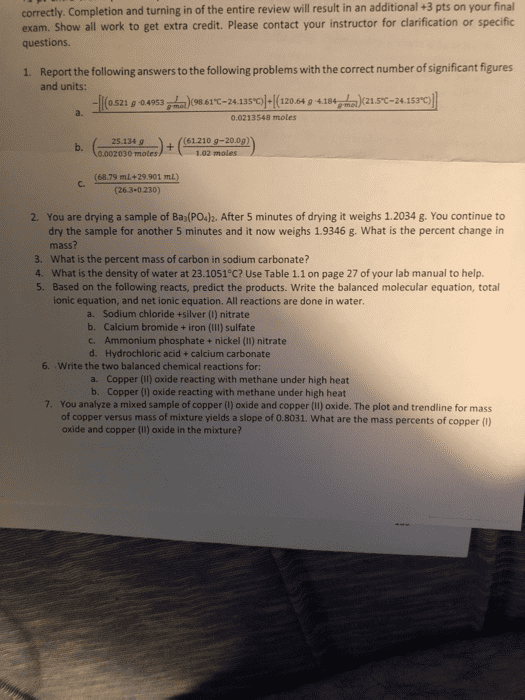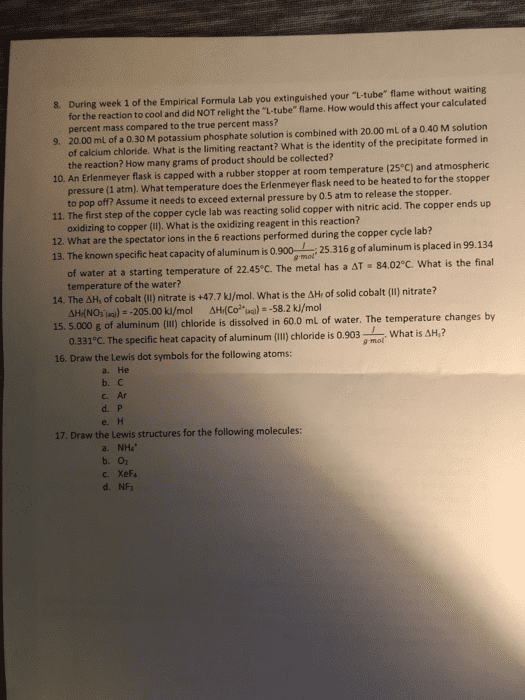CHEM 101L Lecture Notes - Lecture 4: Endothermic Process, Calcium Carbonate, Ammonium Chloride
36 views3 pages
Document Summary
3nahco3 (aq) + h3a (aq) -> na3a (aq) + 3h20 (l) + 3co2 (g) 2hcl (aq) + mg (s) -> mgcl2(aq) + h2 (g) Effectiveness of acid neutralizing in whole and crushed antacid tablets. Class data for antacid effectiveness (crushed vs. whole and name-brands) Write a conclusion to your findings in experiment 4. Be sure to discuss specifics of your experiment for all portions of the experiment and sources of error. Refer to the unc writing center at (http://writingcenter. unc. edu/resources/handouts-demos/specific-writing-assignments/scientific- reports#section-22) for some help. This should be no longer than 2 paragraphs. The first part of this experiment was used to test the change in temperature over time between ammonium chloride with water and sodium carbonate also with water. The results show that, when added to water, ammonium chloride looses heat or has an exothermic reaction with the water. The results also show that when sodium carbonate is added to the water, it gains heat and creates an endothermic reaction.
Get access
Grade+20% off
$8 USD/m$10 USD/m
Billed $96 USD annually

Homework Help
Study Guides
Textbook Solutions
Class Notes
Textbook Notes
Booster Class
40 Verified Answers
Class+
$8 USD/m
Billed $96 USD annually

Homework Help
Study Guides
Textbook Solutions
Class Notes
Textbook Notes
Booster Class
30 Verified Answers
Related textbook solutions
Chemistry: Structure and Properties
2 Edition,
Tro
ISBN: 9780134293936
Basic Chemistry
5 Edition,
Timberlake
ISBN: 9780134138046
Principles of Chemistry Molecular Approach
4th Edition,
Tro
ISBN: 9780134112831
Principles of Chemistry Molecular Approach
3rd Edition, 2014
Tro
ISBN: 9780321971944
Chemistry: Structure and Properties
2nd Edition,
Tro
ISBN: 9780134293936
Chemistry: A Molecular Approach
3rd Edition,
Tro
ISBN: 9780321809247
Chemistry: A Molecular Approach
5th Edition,
Tro
ISBN: 9780134874371
Principles of Chemistry: A Molecular Approach
4th Edition,
Tro
ISBN: 9780134895741
Chemistry: The Central Science
14th Edition, 2017
Brown
ISBN: 9780134414232

